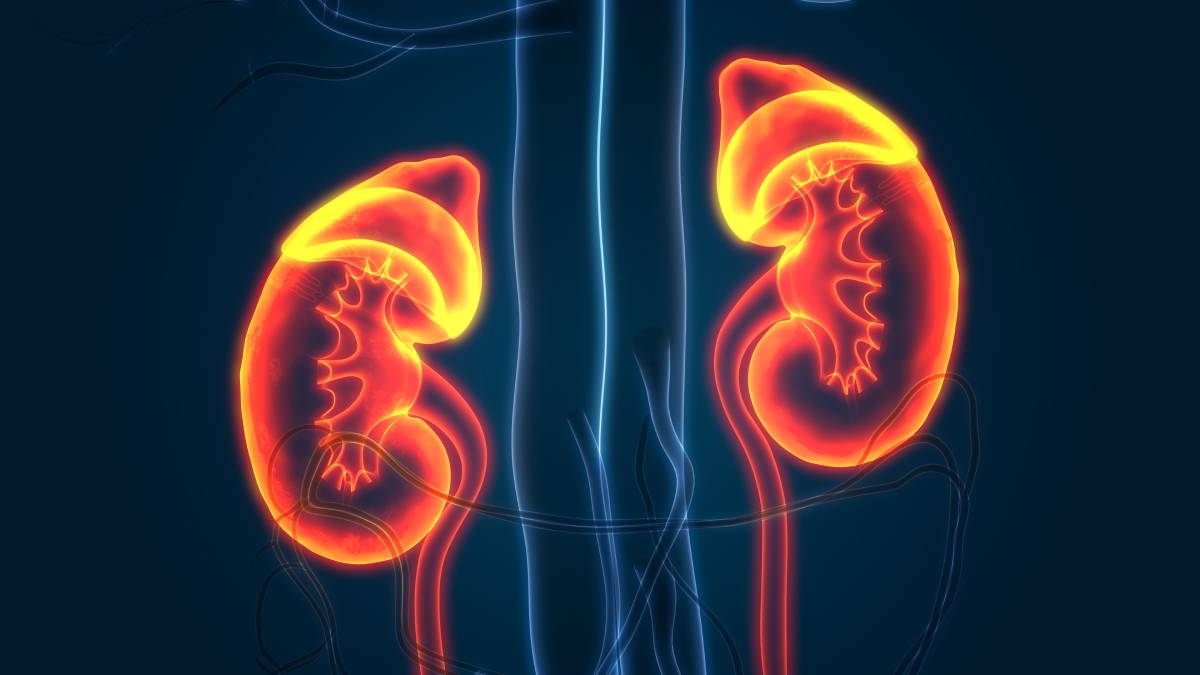Renal Protection and Anesthesia

Acute kidney injury (AKI) is a relatively common postoperative complication, most often occurring after major vascular, cardiac, liver, and transplant surgeries.3 Since both mild and severe cases of AKI are associated with adverse outcomes, it is clinically important to examine how perioperative procedures, such as anesthesia, affect renal function.5 Current research suggests that anesthesia may provide renal protection in some situations.
According to a review published in the American Journal of Nephrology, volatile and intravenous anesthetics provide protection by reducing renal ischemic injury (IR), a form of AKI that is considered a major risk factor for acute renal failure and delayed graft function.4 When administered pre-injury, volatile anesthetics have been shown to reduce the systemic impact of IR, particularly on the heart and brain.4 Similarly, when administered shortly after the injury, volatile anesthetics can reduce the severity of long-term tissue damage.3
Intravenous agents reduce IR through antioxidative, anti-inflammatory and anti-necrotic mechanisms; propofol has been shown to protect against the damaging effects of IR in the brain, heart, liver, kidneys and intestines.6 While rats pre-treated with propofol still showed decreased renal function and increased tubular apoptosis after IR, the severity of these deficits decreased significantly.4 Propofol also appears to enhance the renal protection provided by remote ischemic preconditioning and is associated with better outcomes when used to treat postoperative AKIs.4
There are also implications for anesthesia used in organ preservation protocols. When desflurane, a volatile anesthetic, is added to preservation solutions for renal transplants, prolonged travel time is still associated with normal renal functioning due to desflurane’s resistance to biodegradation.4 Argon-Celsior preservation solutions improve early functional recovery, graft quality, and organ survival.4 Propofol also shows potential for use in preservation solutions; a porcine autotransplantation model showed decreased hypothermic and ischemic AKI.4
However, due to the multifactorial nature of AKI, these conclusions are not comprehensive. Use of anesthetic agents in preventing or treating AKI must be evaluated on a case-by-case basis. Not all forms of anesthesia show such organ protective effects. There is evidence that inhalational anesthetics and analgesics such as opioids and barbiturates can reduce urine output and glomerular filtration.1 Moreover, both sevoflurane and enflurane (volatile anesthetics) are associated with impaired kidney function and nephrotoxicity because they both degrade into inorganic fluoride.4 As different anesthetic agents can have varying levels of protective or adverse effects, current research should be considered when choosing anesthetic agents. For example, patients with obstructive jaundice are more susceptible to postoperative AKI, but their condition also makes their kidneys more susceptible to damage caused by anesthesia4. Thus, studies suggest using propofol or ketamine, which are associated with the least amount of renal oxidative stress6.
More research is required to properly elucidate the mechanisms by which anesthesia provides protection and treatment against perioperative and postoperative renal injury. This an exciting field of study with significant clinical relevance in improving patient outcomes and safety.
References
- Burchardi H, Kaczmarczyk G: The effect of anaesthesia on renal function. European Journal Anaesthesiology 1994; 11: 163–168. PMID: 8050420.
- Fukazawa K, Lee HT: Volatile anesthetics and AKI: risks, mechanisms, and a potential therapeutic window. Journal of the American Society of Nephrology 2014; 25: 884–892. doi: 10.1681/ASN.2013111215.
- Gullick HD, Raizs LG: Changes in renal concentrating ability associated with major surgical procedures. New England Journal of Medicine 1960; 262: 1309–1314. doi: 10.1056/NEJM196006302622604.
- Motayagheni N, Phan S, Eshraghi C, Nozari A, Atala A: A review of anesthetic effects on renal function: potential organ protection. American Journal of Nephrology 2017;46:380–389. doi: 10.1159/000482014.
- Saadat-Gilani K, Zarbock A, Meersch M: Perioperative Renoprotection: Clinical Implications. Anesthesia & Analgesia 2020; 131: 1667-1678. doi: 10.1213/ANE.0000000000004995.
- Yuzer H, Yuzbasioglu MF, Ciralik H, et al: Effects of intravenous anesthetics on renal ischemia/reperfusion injury. Renal Failure 2009; 31: 290–296. doi: 10.1080/08860220902779962.
